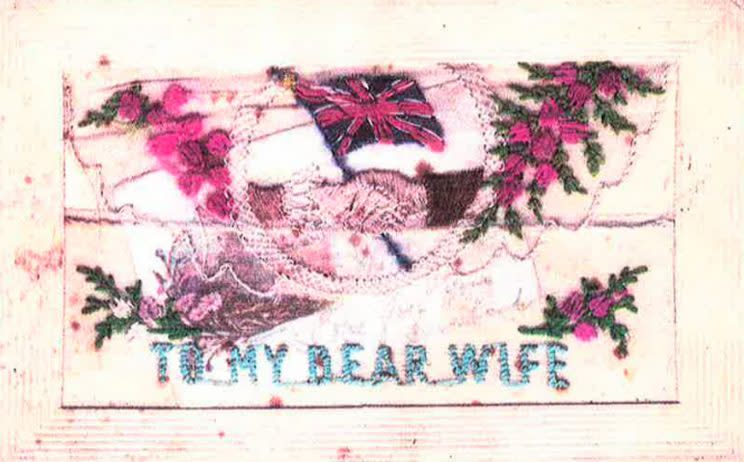Heartbreaking World War I love letters revealed 100 years on

Love letters from First World War soldiers fighting in the Battle of Passchendaele have been revealed a hundred years on from the bloody clash on the Western Front.
In total there were about 275,000 casualties to the armies under British command during the controversial campaign, also known as the Third Battle of Ypres, which David Lloyd George described as “one of the greatest disasters of the war”.
Descendants of soldiers who were killed in the battle, which was fought near the Belgian city between July 31 and November 10, 1917, are now making the keepsakes public to mark the centenary commemorations.
They include letters from Private Charles Snelling to his wife Alice and daughters, and a photograph of Alice carried by Charles, which was discovered by chance in a wood in Belgium months after he was killed in action.
The image was returned to her by the corporal in the Soldiers Christian Association who found it, with a note saying “I am very sorry to say I could not find the owner of the photos. I cannot say if he has been wounded or killed”.

Among the other mementos kept by grandson Bob Snelling, from Surrey, are a lace-embroidered postcard and a letter from Charles, who served in the City of London regiment, before Passchendaele commenced when he was “merry and bright”.
“When this little picnic is finished we will have the old times over again making up for these months of parting”, he told his wife.
MORE: Couples in their 80s are ‘having better sex’ than those in their 50s
MORE: Spring is coming: Britain set to be as warm as Madrid next week
In a final postcard dated August 14, the day before he was killed in an attack on Glencorse Wood, during the battle, he wrote “I am quite well. Letter follows at first opportunity”.
Edward Woolley, known as Ted, wrote to his sister asking her to lie to a girl who had jilted him, in a letter now kept by his niece Ann Phillip, in Frome, Somerset.
“I am glad you told me that you met Bessie, and I think she is sorry now she throwed me up, but I am glad and if you see her again tell her I have got another girl whether I have got one or not,” he wrote.
While his brothers survived the war, Ted died on August 22, 1917, and his name appears on the memorial to the missing in Tyne Cot cemetery alongside 35,000 others who — like him — have no known grave.
Louise Argent, in Devon, has a last letter home from her great- grandfather Private Albert Ford to Edith, the “best of wives”, before he went over the top.
“Know that my last thoughts were of you in the dugout or on the fire step my thought went out to you, the only one I ever loved, the one that made a man of me,” he wrote.

Albert was killed on October 26 1917, and Edith never remarried.
First World War minister Rob Wilson said the letters showed love could survive even through the harrowing experiences of the Battle of Passchendaele.
“I hope these stories will encourage more people to explore their past and apply to join in this summer’s commemorations of this infamous battle.”
To enter the ballot for tickets for the official commemorations of Passchendaele in Belgium, visit passchendaele100.org. The ballot closes on Friday February 24 2017.

 Yahoo News
Yahoo News 

